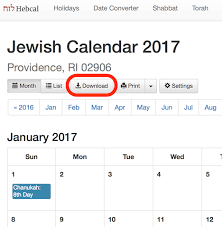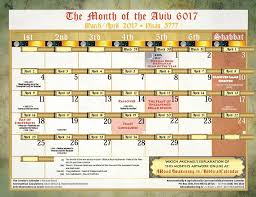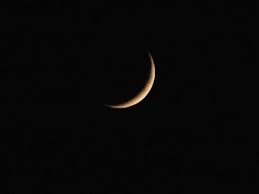Observing and Guarding the Month of Aviv–How to Observe and Guard the Month of Aviv
Observing and Guarding the Month of Aviv--How to Observe and Guard the Month of Aviv
Torah Instruction to Guard
In Deuteronomy 16:1-3 Abba instructed us to “observe (i.e., shamar—guard) the Month of the Aviv,” and keep the Passover unto YHVH our Elohim.” Because in the Month of the Aviv YHVH brought us forth out of Egypt by night.What are we talking about here?
In order to guard the Month of the Aviv we have to do some things: 1. We must know what it means to guard—from a Hebraic perspective. One must ask, does this guarding even make sense to us in the 21st-century West? 2. We must know that the Month of the Aviv is and when it occurs. This then becomes a calendar issue. 3. We must know what is required of us in the guarding of the Month of the Aviv. We must understand how we are to go about guarding/keeping the Month of the Aviv; not from man’s perspective, but from the Creator’s perspective. Let’s look at each of these in some detail.1. Understand/Know what it means to guard/observe
Deuteronomy 16:1 contains the instruction that we are to guard—to shamar—the Month of the Aviv. The Google definition for guard is to watch over in order to protect or control. The Hebrew definition for guard is to hedge about a thing as with thorns; with additional clarifications of protecting; to keep; to mark; to preserve; to wait for; to watch. Sadly, most of us focus solely on the Passover Seder. Yet we see here that we are commanded to do what? We are commanded to guard The Month of the Aviv. Rabbinic Judaism has taken this instruction (and others like it) to place a hedge around the Month of Aviv (and thus all of the Creator’s Feasts) as authority to manipulate and control the Feasts of YHVH contained therein. Thus they have changed the instructions of YHVH and made them of no effect by their traditions and ordinances and rules (Matthew 15:3-6). We are instructed to guard/keep the Month as opposed to just one Feast Day. Strangely, most commentaries (on both side of the aisle—Christian and Judaism) fail to mention this powerful commandment. They bypass the command to guard the Month and go straight on over to “keeping just the Passover.” In terms of Christianity, it’s keeping Easter. However, we’ve been called to do better and to obey the instructions of YHVH.
The Calculated Jewish Calendar was developed by the Sanhedrin in 359 C.E. and is based on mathematical calculations.
“Therefore shall ye keep my commandments, and do them: I am Yehovah” (Leviticus 22:31; ASV).Father exclaimed:
“Oh that there were such a heart in them, that they would fear me, and keep all my commandments always, that it might be well with them, and with their children forever!” (Deuteronomy 5:29; ASV).Our Master addressed this same issue when He instructed:
“If ye love me, ye will keep my commandments” (John 14:15; ASV).The Apostle John took this concept even further when he wrote:
“And hereby we do know that we know Him, if we keep His commandments. He that saith, I know Him, and keepeth not His commandments, is a liar, and the Truth is not in Him” (I John 2:3,4; KJV).Thus we are instructed to guard the entire Month of the Aviv.
2. Know what the Month of Aviv is and when it occurs—a calendar issue.
Father instructed us:“This month shall be to you the beginning of months; it shall be the first month of the year for you” (Exodus 12:2; QBE).Which month is Father referring to here? He clarifies in Exodus 13:4:
“On this day in the Month of Aviv, you are about to go forth” (NASB).We see here that Abba is declaring that the Month of the Aviv is where our new Year begins. It is our New Year!

The Hebrew Calendar is based upon the sighting of aviv barley and sighting the renewed moon in the land of Israel.

The maturation of the barley in the land of Israel is essential to determining when the sacred calendar year begins.
“Let there be lights in the expanse of the heavens to separate the day from the night, and let them be for signs and for seasons and for days and years…” (Genesis 1:14; NASB).The Torah Observant Believer in Yeshua Messiah must make key decisions as it relates to this time of year: whether to recognize who they are and to whom they belong. In determining who they are and to whom they belong, he or she must determine who they will obey: Torah or religion; Yah or man; truth or tradition. Most Messianics adhere to the Rabbinic/Jewish calculated calendar. The rabbis changed the head of the year (Rosh Hashanah) from the 1st day of the month of the Aviv to the 1st of the Babylonian month Tishri, which is the 7th month. The focus shift was from that of the sacred start of the calendar year to the commercial start of the calendar year. Consequently, several changes have been made to adjust Abba’s Feast days and assign guidelines for Feast observance through this calendar. The state of the barley and the sighting of the renewed moon has been entirely eliminated from consideration through the implementation of this calendar. So enamored has Judaism become over this calendar that one Jewish scholar remarked about the calendar’s “mathematical exactness” (Hertz). One should note also that Babylonian names were assigned to each month whereas in Torah, the only month assigned a title or name was the first month—the Month of the Aviv. Please understand dear saint: this is in no way meant to be or appear anti-Semitic. I am using Torah and the rest of scripture to paint as real and fair a portrait of the current calendrical situation as possible. Our western—Gregorian Calendar of course factors in Catholic/pagan-based horror-days and is based, like the Rabbinic Calculated Calendar, on precise mathematical calculations. There is no concern whatsoever for the Creator’s reckoning of time as stipulated in Father’s Torah. The Gregorian New Year begins, not in the spring of each year as Father requires, but in the middle of winter, on January 1st. Needless to say, this New Year celebration is filled with debauchery and is absent the solemnity that the Aviv Month observance is filled with. All in all, the Creator is intentionally and completely factored out of the celebration. As Torah Observant Believers in Yeshua Messiah, we must pick a calendar. Sticking with the Gregorian Calendar will NOT put us in sync with Father’s reckoning of time simply because Father is not in the least factored into its development. The calculated Jewish Calendar on the other hand puts us under control of the Sanhedrin’s and Hillel’s reckoning of time that is based upon religion. The one thing that should be at the forefront of everyone’s mind here is: did we come out of religion only to find ourselves in religion all over again? The observational calendar puts us in sync with Father’s reckoning of time simply because it is Torah and faith-based. I guess it comes down to determining within each of us: how important is it to each of us to be in sync with Father and on time for His set apart days?
3. Know/understand what is required in terms of guarding the Month of the Aviv
So how do we actually guard or keep the Month of the Aviv as commanded by Father in His Torah? The answer to this bottomline question is found in Exodus, chapters 12 and 13; Leviticus chapter 23; and Deuteronomy chapter 16. We must keep in mind that we’re talking about keeping a season/keeping a month, as opposed to just a single night. Father knew we would reduce the significance of His command to guard the Month; thus He especially wanted to make this clear to us in Deuteronomy 16. Thus we are instructed to celebrate the Passover. Now, if we take the time to actually read Torah in context, we will clearly see that Passover is not just one night’s dinner celebration. It’s much more than that dear friend. We are instructed to sacrifice the Passover Lamb, which Master took care of for us on Calvary’s execution stake. So there is no longer any need to worry about that particular task. Certainly, there’s nothing with having a nice lamb meal on Passover night with friends and family. However, we have no business sacrificing lambs as so many in our Faith have made a tradition of during each year. We are instructed to keep the Passover meal, which can include a traditional Passover Seder, but more importantly, Master encouraged us to keep the sacred traditions of eating the bread and wine and washing one another’s feet as He demonstrated and outlined for us in Matthew 14; John 13; and I Corinthians 11. We are instructed to eat Unleavened Bread over the course of the 7-days that immediately follow the Passover Day. Thus, we are to rid our homes and dwellings of all leaven. Leaven during the Month of Aviv, symbolizes sin and the Feast of Unleavened Bread is rich in prophetic and spiritual symbolism and application. Of the Feast of Unleavened Bread, Paul wrote to the Assembly of Messianic Believers in Corinth:“Purge out therefore the old leaven, that ye may be a new lump, as ye are unleavened. For even Messiah our passover is sacrificed for us. Therefore, let us keep the feast, not with old leaven, neither with the leaven of malice and wickedness, but with the unleavened bread of sincerity and truth” (I Corinthians 5:7,8; KJV; adjusted).We are also instructed to celebrate Yom HaBikurim which is the Day of Firstfruits. This day provides us an opportunity to thank Father for His provision and blessings throughout the winter months and thank Him for the spring harvest (Leviticus 23:10-16). Today, it provides us an opportunity to give of our increase to the work of the Gospel. Needless to say, the spiritual and prophetic symbolism and applications here are spectacular as well. Furthermore, we are to teach our children the significance of the season/month (Exodus 12:26). This month offers us the opportunity to redeem our firstborn children and dedicate them to Yehovah (Exodus 12:2-13). How many of us have taken the time to teach and train up our children, and then offer them—pray and anoint them—unto Yehovah our Elohim?
Closing Thoughts
In closing, when we look at guarding the Month of the Aviv, we must actually prepare ourselves to keep the month. It will require that we be zealous and non-compromising in our commitment and practices related to the month and its associated festivals. We must be teachable and obedient to Father’s Holy Spirit so that we are in-sync with Father’s timing and the lessons He’s trying to teach us. We must have in place the proper logistics and even finances to ensure that we are good to go through the month’s activities. We must be Johnny on the Spot to have the time set aside for observing the Month as Father’s has instructed. For those of us who work, it will require that we secure time off for work during key days of the festival. Thus, it behooves us as we prepare to guard the Month of the Aviv, to pray and study, study and study. Each of us must be convinced within ourselves that we are doing what Father would have us do. Paul stated to the Assembly of Messianic Believers in Rome:“One man esteemeth one day above another; another esteemeth every day alike. Let every man be fully persuaded in his own mind” (Romans 14:5; KJV).It is vital that each of us establishes, fosters and maintains as deep a relationship with Abba as we possibly can and then seek Father’s Holy Spirit to lead us and guide our guarding of the Month of the Aviv. I’ve just given you the framework upon which to build your own guarding of the Month of the Aviv. It now falls to each of us to put drywall and finishing touches to our guarding of the Month of the Aviv. Have a blessed and happy New Year.
Waking-up From the Slumber-Feast of Tabernacles 2024-Kenya
Join Rod Thomas in this enlightening episode of the Messianic Torah Observer as he discusses the significance of the upcoming Spring Feasts, including Passover and the Feast of Unleavened Bread. Dive deep into the spiritual implications of these sacred times,...
Learning to Leave Well Enough Alone-Thoughts and Reflections on Torah Reading 24
Podcast Episode: Learning to Leave Well Enough Alone - Thoughts and Reflections on Torah Reading 24 In this episode of the Messianic Torah Observer, Rod Thomas delves into Torah Reading 24, titled "Learning to Leave Well Enough Alone." Rod reflects on...
The Two Afflictions That Get God’s Attention
Messianic Torah Observer Podcast Episode: The Two Afflictions That Get God's Attention Host: Rod Thomas Date: April 3, 2025 Episode Summary: In this episode, Rod Thomas shares his thoughts ahead of the spring feast and discusses the significance of Yom Kippur, the Day...
Shabbat HaChodesh-the Sabbath Before Biblical Rosh HaShannah 2025
Greetings and Introductions Greetings saints of the Most High. Welcome to another installment of the Messianic Torah Observer. Rod Thomas coming to you on a beautiful spring midweek day here in the DFW. I want to thank you for taking the time out of your busy...
Unlocking the Keys to the Kingdom Part 2: Binding and Loosing on Earth and in Heaven
Greetings and Introductions Greetings saints of the Most High. Welcome to another installment of the Messianic Torah Observer. Rod Thomas coming to you on a beautiful Spring midweek day here in the DFW. I want to thank you for taking the time out of your busy...
Unlocking the Keys to the Kingdom: Understanding Yeshua’s Teachings in Light of Torah
Greetings and Introductions Greetings saints of the Most High. Welcome to another installment of the Messianic Torah Observer. Rod Thomas coming to you on a beautiful Spring Preparation Day here in the DFW. I want to thank you for taking the time out of your busy...
Shabbat Zachor – Blotting out the Spirit of Esau in the Lives of God’s People
Greetings and Introductions As I am publishing this discussion, it is the 6th day of the 12th month on Yah's sacred calendar year, which translates to March 7, 2025. And we are potentially less than a month away from biblical Rosh HaShannah. As we near the end of this...
Understanding our Melchizedekian Priestly Pedigree-Part 4: Jasher’s Hidden Chronicles of the Melchizedekian Priesthood
Greetings, saints of the Most High! Welcome to another installment of the Messianic Torah Observer. Today, we delve into the intriguing topic of our Melchizedekian Priestly Pedigree, focusing on Jasher’s hidden chronicles. In Part 3, we explored the theological...
Understanding our Melchizedekian Priestly Pedigree-Part 3 : The Theological Implications of the Avram-Melchizedek Encounter
I. Greetings and Introductions Greetings saints of the Most High. Welcome to another installment of the Messianic Torah Observer. Rod Thomas coming to you on a cold, overcast Preparation Day in the DFW. Thank you for taking the time out of your...
Understanding our Melchizedekian Priestly Pedigree-Part 2 : Abram’s Melchizedek
This is "Understanding our Melchizedekian Priestly Pedigree Part 2: Avram’s Melchizedek.” Rehash of Part 1: The Royal Priesthood: Exploring the Historical, Spiritual, and Eschatological Roles of Melchizedek - Part 1 In part one of this...


0 Comments